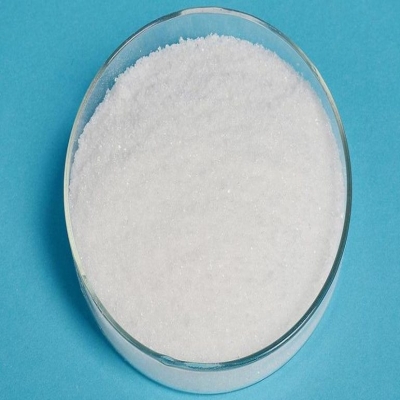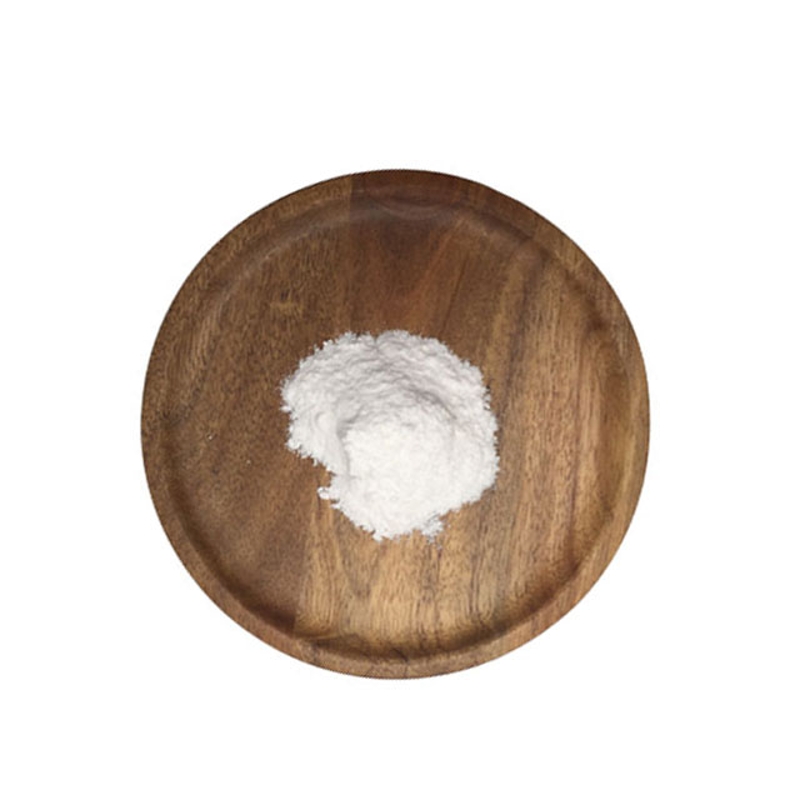-
Categories
-
Pharmaceutical Intermediates
-
Active Pharmaceutical Ingredients
-
Food Additives
- Industrial Coatings
- Agrochemicals
- Dyes and Pigments
- Surfactant
- Flavors and Fragrances
- Chemical Reagents
- Catalyst and Auxiliary
- Natural Products
- Inorganic Chemistry
-
Organic Chemistry
-
Biochemical Engineering
- Analytical Chemistry
- Cosmetic Ingredient
-
Pharmaceutical Intermediates
Promotion
ECHEMI Mall
Wholesale
Weekly Price
Exhibition
News
-
Trade Service
According to a report from Sina News on June 8, South African researchers discovered a potentially dangerous mutation of the new coronavirus (SARS-CoV-2) in a 36-year-old South African female with COVID-19 in the late stage of AIDS
.
The woman had more than 30 mutations in her body during the 216 days she was carrying the new coronavirus
.
The case report was published on the medical preprint website medRxiv in the form of a preprint on the 3rd
.
It is worth mentioning that the research has not yet been peer reviewed
.
According to the report, the patient was diagnosed with AIDS (HIV) in 2006, and doctors have been unable to control his viral load with standard antiretroviral therapy
.
Over time, her immune system has been weakening
.
After contracting the new crown in September 2020, the number of CD4+ T lymphocytes in her immune system was very low
.
The new coronavirus detected in the body has 13 mutations in the key spike protein and 19 other genetic changes that may change the behavior of the virus, including the British variant E484K and the South African variant N510Y
.
The researchers said that the patient’s mutation may be related to the impaired immune response caused by the unsuccessful treatment of HIV
.
At present, it is not clear whether the mutant virus carried by the woman has been transmitted to others
.
In fact, mutations are common in nature, as are viruses
.
Although most of the human diseases caused by HIV and hepatitis viruses are currently difficult to cure, they appear to be very "terrible"
.
However, the structure of the virus is very simple-the protein shell wraps the genetic material, the genetic material is only DNA or RNA, and sometimes there are modifications of carbohydrates and lipids
.
The genetic material of a virus is DNA or RNA, and it is divided into single-stranded and double-stranded, namely single-stranded DNA, double-stranded DNA, single-stranded RNA, and double-stranded RNA
.
The well-known new coronavirus (SARS-CoV-2) is a single-stranded RNA virus
.
In order to spread, once the new coronavirus enters the cell, RNA will start to replicate wildly and produce a large number of copies of itself.
In the process of tens of thousands to hundreds of millions of replications, the virus will randomly make replication errors and there is no opportunity for error correction
.
Over time, the genetic sequence of the virus began to differ slightly
.
In this process, any change in the viral gene sequence is called a mutation, and a virus with a new mutation is called a variant
.
From the perspective of genetics, the new coronavirus, an RNA virus, has a higher mutation rate
.
On the other hand, viruses have to avoid attacks from the immune system while competing for space with other viruses.
The high mutation rate and fast mutation speed mean that it has a better chance of forming traits that adapt to the environment
.
Although mutations are common, why did the AIDS patient produce so many mutations in his body? In 2020, the research team of Professor Jose M Miro from IDIBAPS Hospital in Barcelona, Spain, published a review on Lancet HIV, explaining the similar mechanism.
HIV mainly destroys the human immune system, and progressive immune deficiencies characterized by the reduction of human CD4 cells.
A comprehensive disease that is secondary to various opportunistic infections, malignant tumors and central nervous system diseases
.
In general, no difference in viral load was found between HIV-negative and HIV-positive COVID-19 infected persons
.
However, under certain circumstances such as late stage AIDS, low CD4 cell counts, or uncontrolled HIV replication, HIV-positive COVID-19 infected persons may exhibit prolonged shedding of the new coronavirus and eventually promote the emergence of new coronavirus variants.
This also means that the chance of mutation is increased
.
Overview of SARS-CoV-2 infection in adults living with HIV.
Lancet HIV.
doi: 10.
1016/S2352-3018(21)00070-9.
In fact, in addition to AIDS, other immunosuppressed populations will also show prolonged COVID-19 The virus falls off, causing the virus to mutate
.
As early as last spring, a 45-year-old man in the United States went to Brigham and Women's Hospital in Boston due to COVID-19 infection
.
In the following five months, he was readmitted to the hospital many times due to COVID-19 infection and severe pneumonia recurrence
.
During the infection process of this man, Boston Brigham and Women's Hospital, Harvard Medical School and MIT teams extracted the new coronavirus from the man's body and sequenced the new coronavirus genome every few weeks
.
Subsequent analysis showed that the new coronavirus changed very quickly in the man's body, with more than 20 mutations
.
Sequencing of SARS-CoV-2 whole genome virus from nasopharyngeal swabs collected longitudinally.
Persistence and Evolution of SARS-CoV-2 in an Immunocompromised Host.
DOI: 10.
1056/NEJMc2031364.
The results of the study were subsequently published on NEJM, even though they were not It has not received much attention from the medical community, but in December of the same year, Professor Mini Kamboj of the Memorial Sloan-Kettering Cancer Center (MSKCC) made the same discovery
.
It mentioned in the NEJM public letter that it uses cell cultures to detect live viruses in continuously collected respiratory samples (nasopharynx and sputum samples) from 20 immunocompromised patients with Covid-19 (Figure A below)
.
These patients include 18 patients receiving hematopoietic stem cell transplantation or chimeric antigen receptor CAR-T cell therapy and 2 patients with lymphoma
.
Covid-19 was diagnosed between March 10 and April 20, 2020, using the modified CDC nucleic acid amplification test
.
Live virus was isolated from Vero cells, and the new coronavirus mutation was also confirmed by whole-genome sequencing of the nasopharynx and cultured specimens
.
The research design and genetic variation overview of the sequenced SARS-CoV-2.
Shedding of Viable SARS-CoV-2 after Immunosuppressive Therapy for Cancer.
DOI: 10.
1056/NEJMc2031670 Since the virus can have multiple variants in the same person, is that an indication? Is the epidemic getting worse? In fact, virus mutations have always existed.
At the same time, there may be many variants of the virus.
However, under the natural law of survival of the fittest, not every mutation can allow the virus to survive and develop, and some mutations will also compete.
Be eliminated
.
For example, certain virus variants have acquired the ability to evade detection by the immune system more effectively, retain or even enhance their transmission ability, and can survive better and spread more rapidly and widely among the population, “crowding” the original strain.
The space with other mutant strains is becoming larger and larger, becoming the dominant strain
.
After some viruses mutate, their infectivity and pathogenicity are reduced, or it is more difficult to escape the resistance of human immunity
.
Whether the mutated virus reduces or enhances its infectivity requires scientific and rigorous experimental verification and epidemiological investigation to determine
.
Citing news from the Los Angeles Times, Tuliode Oliveira, a geneticist at the University of KwaZulu-Natal in Durban, said in an interview that this is only an isolated phenomenon in response to the situation of the woman
.
However, she also pointed out that once a large number of new coronavirus variants appear in a wide range of AIDS populations, those AIDS patients whose infections are not controlled by drugs may become "variant factories" for the entire world
.
According to the "Global AIDS Prevention and Control Progress Report 2020" released by the UNAIDS, there were approximately 1.
7 million new infections in 2019
.
China, Vietnam, the Philippines, Malaysia and Papua New Guinea account for the majority of HIV infections in the Western Pacific
.
The number of new cases of HIV infection in 2020, UNAIDS At this stage, the pandemic will inevitably have a negative impact on all aspects of HIV-infected people.
What can be done is to take some corresponding measures to minimize the impact of new coronary pneumonia on HIV-infected people
.
First of all, the elderly patients and those with underlying diseases in this population should still focus on and strengthen health monitoring, and should pay attention to potential new crown infection promoting factors in this population (for example, the use of new drugs such as methamphetamine, low CD4 levels, etc.
)
.
Secondly, pay attention to the provision of routine medical services and drug supply for HIV-infected people to ensure the continuity of HIV prevention and treatment services
.
As China advances vaccination work in an all-round way, vaccination is also crucial
.
Earlier, Xinhua News Agency interviewed relevant authorities and authoritative experts in the industry on whether people with relatively weak immune systems, such as cancer patients, organ transplant recipients, and HIV-infected people, can be vaccinated against the new crown vaccine
.
Shao Yiming, a consultant to the World Health Organization's Vaccine Research and Development Committee and chief AIDS expert at the Chinese Center for Disease Control and Prevention, said that people with weakened immune systems such as cancer patients and AIDS patients are similar to those with underlying diseases and are high-risk groups to be protected first
.
In principle, vaccinations against the new coronavirus are encouraged
.
However, it is important to note that before vaccination, it is necessary for the doctor to determine whether it is in the acute attack of the underlying disease, whether there is still an immunodeficiency, and whether it needs radiotherapy and chemotherapy
.
If so, delay vaccination
.
In addition, the STD and AIDS Prevention and Control Center of the Chinese Center for Disease Control and Prevention also reminded that it is safe and effective for people living with HIV to be vaccinated without obvious symptoms of immunosuppression
.
Reference: https://wellcome.
org/news/what-variant-expert-explainshttp:// /03/19/ARTIU8X0oPcf0HTMwMsQZEbt210319.
shtml Author| Xiaomao Editor| Jessica







